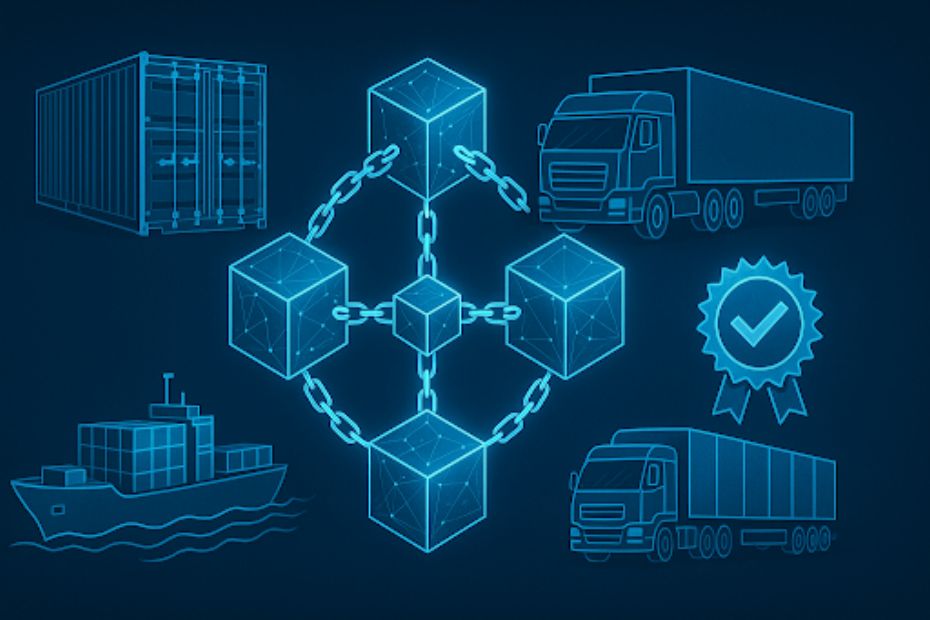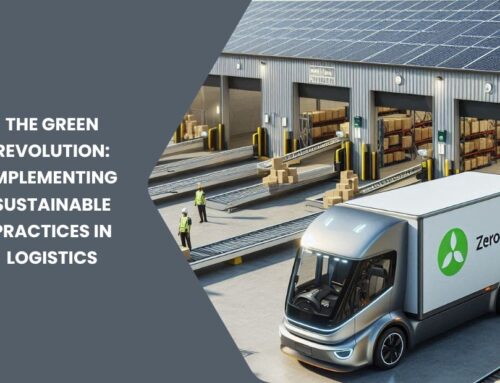If you’re responsible for moving goods across the supply chain, you’ve likely dealt with delays, disputes, or compliance gaps that came down to one issue—lack of visibility. When information is fragmented or delayed, it’s hard to respond fast or make confident decisions. Blockchain gives you the ability to record and share real-time data in a way that’s secure, unchangeable, and accessible to every authorized party involved. You reduce fraud, automate trust, and create a more synchronized flow of goods and information. This article breaks down how blockchain helps you cut through confusion, secure your logistics operations, and build real accountability from origin to delivery.
Real-Time Tracking With Nothing Left to Guess
You probably know how hard it is to pinpoint exactly where a shipment is—and more importantly, what’s happened to it—once it’s left your facility. Blockchain puts an end to chasing updates across disconnected systems. Every step in the supply chain can be logged as a block on the chain, and that information is instantly visible to everyone in the network.
Whether it’s cargo loaded in a container, transferred at a port, or delivered to a warehouse, each step creates a timestamped, tamper-proof record. Everyone working with that shipment—suppliers, carriers, customs, distributors—can see exactly what’s happening without needing to ask or confirm. That means fewer miscommunications and faster decisions when something changes mid-transit.
Security You Don’t Have to Second Guess
Data security matters more than ever in logistics, especially when you’re dealing with global suppliers or high-value goods. Traditional systems store critical records in centralized databases that are vulnerable to breaches, manipulation, or accidental loss. Blockchain changes that by distributing copies of the record across the network, so there’s no single point of failure.
Once a transaction is recorded, it can’t be altered—not without permission from the entire network. That level of integrity makes fraud nearly impossible. It’s a game changer for industries plagued by counterfeiting, gray-market rerouting, or unauthorized modifications to paperwork. You stop relying on blind trust and start operating on verified records.
Smart Contracts That Automate the Workload
If you’re still relying on manual processes to trigger payments, confirm deliveries, or issue documents, you’re spending more time and money than necessary. With blockchain, you can set up smart contracts—digital agreements that automatically execute tasks once certain conditions are met.
For example, once a shipment is confirmed delivered via GPS and scanned into a warehouse, a smart contract can automatically release payment to the carrier. No invoices, no approvals, no back-and-forth. This eliminates paperwork, reduces administrative errors, and speeds up the entire transaction cycle without needing extra manpower to manage every step.
Compliance Made Simple—And Verifiable
International shipping regulations, customs requirements, and supply chain certifications all demand accurate documentation. Blockchain helps you stay audit-ready by logging every action in a transparent, time-stamped chain of custody. You’re not scrambling to compile a report from fragmented data—you already have one that’s ready to share and impossible to tamper with.
That makes customs clearance faster because officials can instantly verify where goods came from, who handled them, and whether all protocols were followed. It also helps with industry standards like food safety, pharma traceability, and emissions tracking, where documentation gaps could lead to delays, fines, or even shutdowns.
Lower Overhead With Fewer Admin Headaches
Think about how much time your team spends reconciling records, validating transactions, or chasing signatures. Multiply that across vendors, carriers, and partners, and it adds up quickly. Blockchain allows all parties to work from a shared source of truth. You reduce the need for duplicate entries, reconciliations, or status checks.
Since the ledger updates in real time, you’re not waiting for someone to log in or respond to an email. Everyone has access to the same verified data, which cuts down on phone calls, emails, and paperwork. You save time and reduce administrative costs without losing visibility or control.
Trust That Doesn’t Rely on Assumptions
Trust is a currency in logistics—but it’s often based on prior experience or incomplete data. Blockchain helps you replace assumptions with proof. When all parties work from a transparent system, you’re not left wondering who did what, when. Each action is recorded, verified, and visible.
This creates a collaborative environment where suppliers, shippers, and clients know they’re working with accurate, shared information. It’s easier to resolve disputes, track down delays, and align on performance metrics. You build stronger partnerships by reducing finger-pointing and creating accountability that’s backed by data, not guesswork.
Proof of Sustainability Without the Greenwashing
If you’re trying to show customers or regulators that your supply chain is sustainable, you need more than a promise—you need traceable proof. Blockchain helps verify things like the source of raw materials, labor standards, and environmental conditions during production or transit.
This level of visibility supports ESG goals by showing exactly where materials came from and how they were handled. You can trace a product’s journey back to the farm, mine, or factory and prove that it meets sustainability or ethical standards. That gives your brand a credible edge and helps avoid accusations of greenwashing.
Why Use Blockchain in Logistics?
- Provides real-time shipment tracking
- Secures records against tampering
- Automates processes with smart contracts
- Simplifies audits and compliance
- Cuts admin costs by reducing duplicate work
- Builds trust with verified data
- Verifies sustainability and sourcing claims
In Conclusion
When you’re running a logistics operation, you need more than tracking numbers and spreadsheets—you need systems that verify, automate, and protect every move your goods make. Blockchain gives you that visibility and trust without slowing things down or adding to your workload. From smart contracts and shipment transparency to fraud prevention and ESG validation, the technology works quietly in the background, making sure the data you’re relying on is accurate, timely, and secure. If you want a supply chain that runs smarter, faster, and more reliably, blockchain isn’t just an upgrade—it’s the new baseline.
Want to explore how secure, transparent tech is shaping the future of logistics? Follow my insights on Quora: quora. Let’s unpack the future of smarter, data-driven supply chains together.









